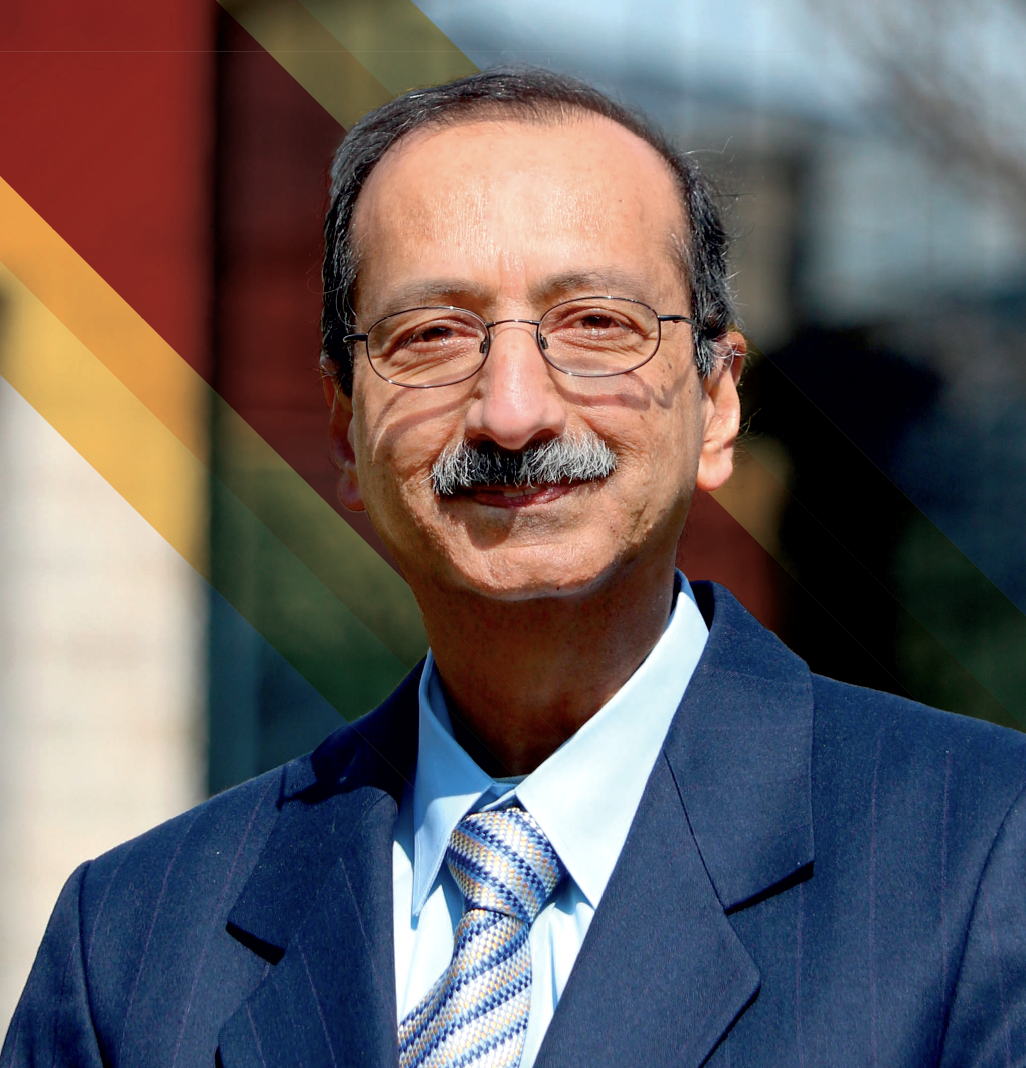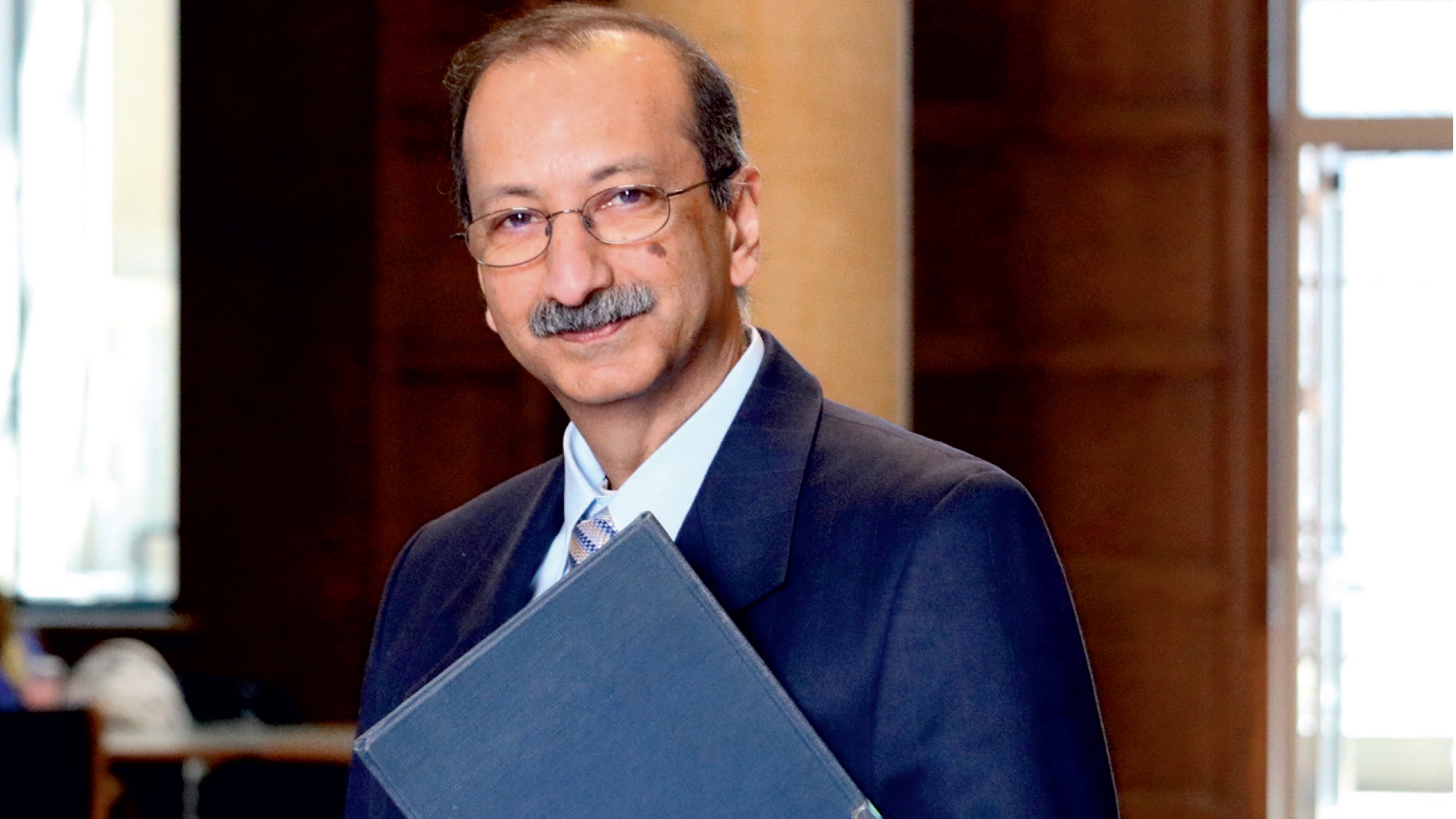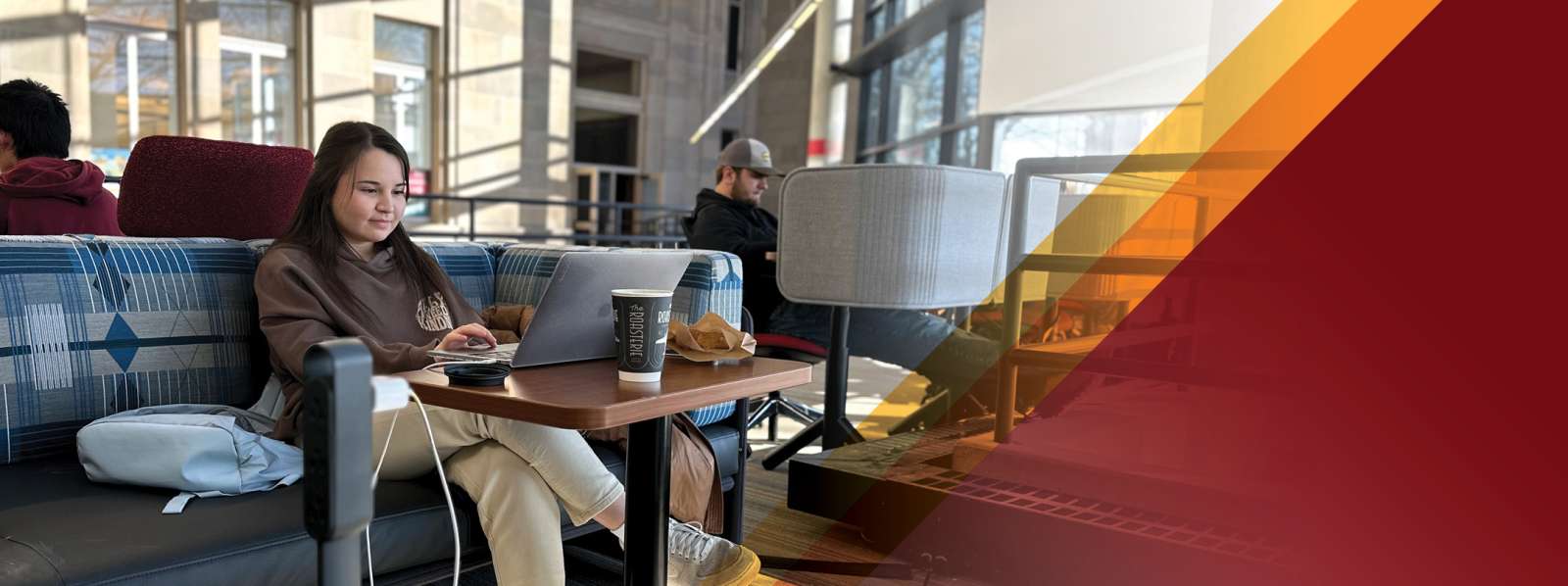Microsoft manager found a home, knack for information discovery at Parks Library
Author: Melea Reicks Licht
Author: Melea Reicks Licht
The group program manager for Microsoft smiles when retelling of his time as a student employee at Parks Library long before he helped launch the multinational’s AI-powered search function, Bing.
“Parks Library is like when there’s frost on the ground and the sun comes up and melts away all the frost except for the shady places,” said Chopra. “The library is like that warm place in the sun.”
It’s also where Chopra built a strong foundation in information discovery and retrieval.
While earning his bachelor’s and master’s degrees in computer science, Chopra worked at Parks Library in the reference department. His service at Parks Library was a precursor to his career at Microsoft.
“There were no online search engines,” Chopra said. “We had to rely on indexing services delivered every week or month. One of my jobs was to replace updates in binders… The reference librarians were the experts that assembled the information. I assisted, took phone calls, assembled answers and resources and prepared them for shipping. The core and heart of library exposed me to so many wonderful things.”
At Microsoft, Chopra works to improve their search function’s understanding of human intent using artificial intelligence (AI).

Gagan Chopra, group program manager, Microsoft
Chopra said Microsoft’s Copilot can answer any question. Their team focuses on how to make the program more user friendly in how it accepts information and provides results.
“It is getting better and better at understanding human intent and helping humans accomplish their intent,” he said.
Born in Punjab, India, Chopra entered high school in the early 1980s just as computers were making their way into mainstream everyday life. He found their capabilities fascinating and the idea of enabling human thought with technology meshed with his mindset. His father was an Iowa State alumnus whose footsteps he followed to the Midwest. At Iowa State Chopra said he gained more than degrees; he developed a framework for life.
“My professors in computer science modeled humility, simplicity, and respect,” he said. “They taught me creative problem solving, how to be systematic in recording your thoughts and versioning your work. It all influenced how I focus my time, energy, and life. Democratizing computing was founded on seeds I got at Iowa State.”
Upon graduation with his master’s in 1993, Chopra was drawn to a “small player” in the tech industry — Microsoft. He felt their PCs were the way forward in democratizing computing. Since joining the company, Chopra has watched the scale of personal computing explode.
“We were a small company at the time, well under 6,000 globally. Our whole thought process was how do we get a PC on every desk? Twenty-five percent was our first goal,” he said. “Now computing is everywhere. It’s in your pockets and on your wristwatch. You talk to Alexa and Google Home. It’s been exciting. And our pace of innovation continues to accelerate.”
While at Iowa State, Chopra lived in Schilletter Village, but was often on campus from 6 a.m. to midnight. Between classes his home was Parks Library. “I leveraged everything I could from the library,” he said. “I’d use the media section to watch a movie, I’d read newspapers in the great Reading Room, I poured over stacks of books. I couldn’t afford to buy all we needed. It’s where I gathered for study groups and hanging out with friends. I may have spent more time at the library than sleeping in our apartment.”
It was during one of those many hours at Parks Library that Chopra sought out and uncovered his father’s thesis. He ran his fingers along the spine over his father’s name and felt connected even though he was half a world away. His father, Anand Kumar Chopra, earned a master’s in electrical engineering in 1948.
“Finding my dad’s thesis was a fun exercise,” said Chopra. “But the real ‘aha’ aspect was that it turned an abstract idea of my dad as an alumnus to a concrete piece of his work that was discoverable. I stood there and felt the weight of 42 years of association with Iowa State University and my family.”
It’s an association that is still going strong. Chopra frequently travels to Iowa State from his Redmond, Washington, home to serve on the advisory councils for the Department of Computer Science and the College of Liberal Arts and Sciences.

Chopra found his father’s thesis in Parks Library while working as a student employee. His experiences in the library helped pave the way for a career in information discovery and retrieval.
A recent visit included presenting a keynote at Iowa State University’s Faculty Senate Bi-Annual Symposium, “AI in Teaching and Research.” Chopra’s philanthropic support of the University Library Strategic Fund has made lasting impacts throughout the library’s facilities and programs. The Strategic Fund is administered by Hilary Seo, dean of the University Library.
“A gift to the strategic fund allows funding to flow to emerging high-priority student, faculty, and staff needs,” said Seo. “Gagan’s gifts have provided updates to furniture and power on the second-floor bridge area, Open Educational Resources that help keep costs low for students, and scholarships for library student employees among other meaningful projects.”
Chopra said he gives to the University Library to provide a sense of home to new generations of students and support the library’s important role on campus and in society.
“It’s hard to imagine anyone spending time in the library and not being influenced by it,” said Chopra. “Libraries are equalizers. They provide equal access to information. Libraries are where intellectual collaboration happens. It’s like your ignorance is dissipated just like the sun melts away the frost. Libraries provide warmth. You feel welcome.”

To join Gagan Chopra in providing equal access to information, intellectual collaboration, and a welcoming library visit lib.iastate.edu/give or contact Shelly Jordan, senior director of development, at sljordan@foundation.iastate.edu.